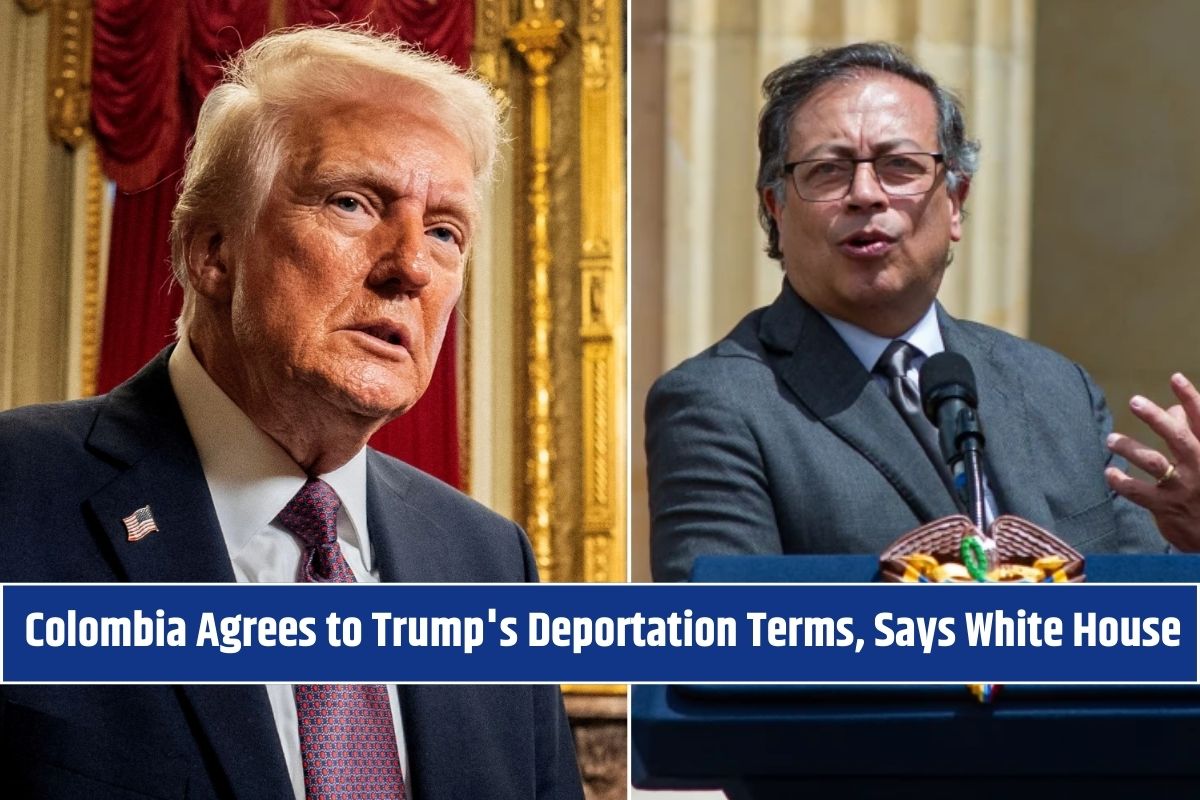The White House announced on Sunday that Colombia has agreed to accept all U.S. deportation flights, including those operated by military aircraft, following a standoff between the two nations. Earlier that day, Colombian President Gustavo Petro denied entry to U.S. military deportation flights carrying Colombian nationals, prompting former President Donald Trump to threaten retaliatory tariffs and sanctions.
Colombia Accepts U.S. Deportation Flights
White House Press Secretary Karoline Leavitt stated that Colombia has agreed to President Trump’s demands, including the unrestricted acceptance of Colombian nationals deported from the U.S.. Leavitt added that while tariffs and sanctions will remain on standby, they will not be implemented unless Colombia fails to honor its commitments.
The agreement comes after tensions flared when Colombia abruptly revoked diplomatic clearances for the flights, which had initially been approved. The flights, carrying approximately 80 deportees each, were operated by U.S. military C-17 aircraft.
Trump’s Retaliatory Measures
Reacting to Colombia’s initial refusal, Trump announced sweeping retaliatory measures, including:
- Tariffs on Colombian imports, starting at 25% and increasing to 50% within a week.
- Visa sanctions, including travel bans and revocation of visas for Colombian government officials, allies, and their families.
- Enhanced customs inspections on Colombian goods entering the U.S.
Trump justified these actions by citing risks to U.S. national security and public safety, accusing Colombia of violating its obligations to accept deported nationals.
Petro’s Response and Diplomatic Resolution
In response to Trump’s threats, President Petro criticized the use of military planes for deportations, emphasizing the need to treat migrants with dignity. Petro pledged to use Colombia’s presidential plane to repatriate its citizens, stating, “A migrant is not a criminal and should be treated with the dignity a human being deserves.”
Colombia’s Foreign Affairs Ministry announced plans to send officials to Washington, D.C., to maintain high-level diplomatic relations and finalize agreements. Petro’s office reaffirmed its commitment to receiving deported Colombians under dignified conditions.
Broader Regional Implications
The deportation dispute highlights growing tensions between the U.S. and several Latin American countries over immigration policies. Mexico and Brazil have recently criticized the treatment of their nationals during deportations, while Guatemala continues to receive repatriation flights amidst ongoing regional frustrations.
The Trump administration has increased enforcement efforts along the U.S.-Mexico border, deploying an additional 1,500 troops and ramping up deportation flights as part of its immigration crackdown.
The U.S.-Colombia deportation standoff underscores the complexities of immigration policies and international relations. While Colombia has now agreed to accept deportation flights, the diplomatic fallout serves as a reminder of the delicate balance required to address migration challenges while respecting human rights and maintaining international cooperation.
